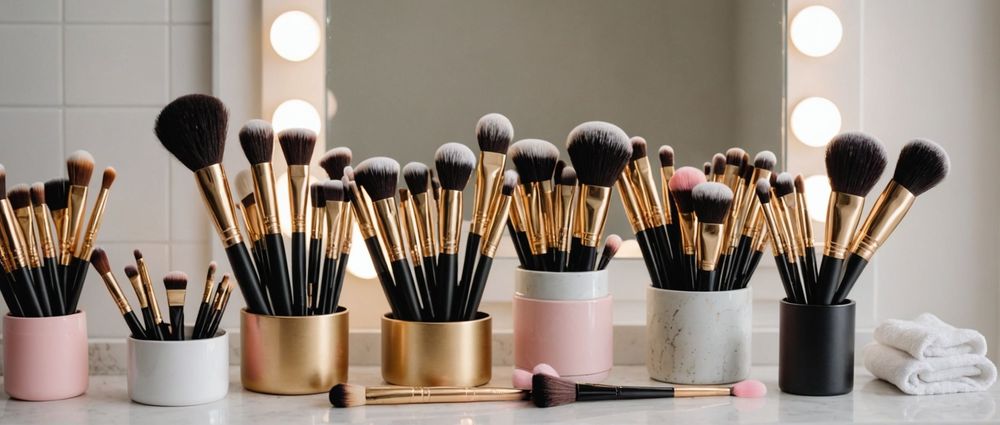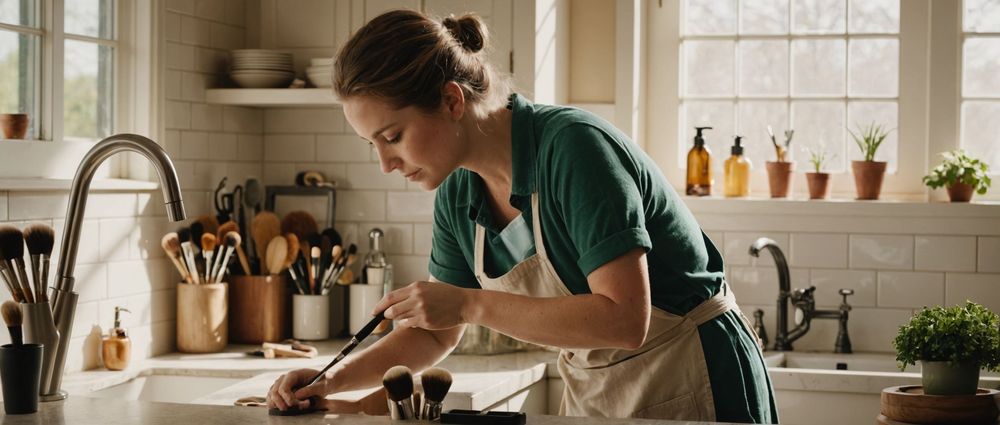Makeup brushes are essential tools in any beauty regimen, but knowing when to replace them can be tricky. Over time, brushes can harbor bacteria and lose their effectiveness, impacting your makeup application and skin health. This guide details when and why you should consider replacing your brushes and provides tips on maintaining their longevity.
Signs It’s Time to Replace Your Makeup Brushes

Understanding the signs that indicate a brush’s lifetime is over helps maintain not just hygiene but also the integrity of your makeup application. Brushes are typically made of natural or synthetic fibers, and each type has its own lifespan. Here are a few key indicators that it’s time for a replacement:
- Shed Fibers: If you notice that your brushes are shedding hair excessively, it’s a clear sign that they are losing integrity.
- Change in Texture: If the bristles feel rough or hard instead of soft and pliable, they may not apply makeup evenly anymore.
- Odor: Any unpleasant or rancid smells can indicate the presence of bacteria, meaning it’s time to toss them.
- Discoloration: Brushes with visible stains that you can’t clean may harbor bacteria and oils.
- Irregular Shapes: If your brush has lost its original shape and now looks frayed or deformed, it won’t apply makeup as intended.
How Often Should You Replace Your Brushes?

The frequency with which you should replace your makeup brushes can vary from person to person, depending on usage and maintenance. Generally, here’s a guideline to follow:
- Daily Use Brushes: Such as foundation or concealer brushes should be replaced every 6-12 months.
- Eye Brushes: Brushes used for eyeshadow or eyeliner can last anywhere from 1-2 years, provided they are cleaned regularly.
- Specialty Brushes: Brushes for specific applications, like contouring, can be replaced every 1-2 years based on frequency of use.
- Occasional Use Brushes: Brushes that are rarely used may last longer, but you should evaluate them for wear and tear periodically.
Maintenance Tips to Extend Brush Life
To get the most out of your makeup brushes, proper maintenance is crucial. Here are some proven strategies to help preserve their performance:
- Regular Cleaning: Clean your brushes weekly to prevent makeup buildup and bacterial growth. Use a gentle cleanser and lukewarm water to rinse and reshape.
- Proper Drying: After washing, lay your brushes flat on a towel to dry. Avoid standing them upright in a cup, which can cause water to seep into the ferrule.
- Store Properly: Keep brushes upright in a container or travel case to maintain their shape and avoid damage.
- Avoid Sharing: Sharing brushes can spread bacteria. Keeping your brushes personal to you will help maintain skin health.
- Check Brushes Often; Regularly inspect your brushes for wear and tear. A stitch in time saves several!
The Impact of Dirty Brushes on Your Skin
Using dirty brushes can significantly affect your skin health. Not only can they carry bacteria and oils, but they can also cause skin irritations or acne breakouts. The buildup of makeup residue on dirty brushes can lead to uneven application and compromised makeup consistency. Maintaining clean brushes not only enhances your makeup look but also contributes to healthier skin. If you’re experiencing sudden breakouts or allergic reactions, check your brush hygiene as a potential culprit.
Conclusion
Knowing when to replace your makeup brushes is vital for both effective makeup application and skin health. Regular inspections and proper maintenance can significantly extend the life of your brushes; however, understanding the right time for replacement is key. Be attentive to the signs that indicate wear, and make replacements as necessary to keep your beauty routine at its best.
FAQs
1. How can I clean my makeup brushes?
You can clean your brushes with gentle soap or a specialized brush cleanser. Swirl the bristles in the solution, rinse them thoroughly, and reshape before laying them flat to dry.
It is not recommended to share brushes, as it can lead to the spread of bacteria and skin irritations. Always use your brushes for personal use.
3. How do I know which brushes need to be replaced?
Look for signs of shedding, changes in texture, odors, discoloration, or irregular shapes. If any of these signs are present, consider replacing the brush.
4. Can I disinfect my brushes instead of replacing them?
While disinfecting can help remove germs and bacteria, it can’t restore the integrity of worn brushes. Use disinfection as part of your maintenance, but replace brushes as needed.
5. How often should I clean my makeup brushes?
You should ideally clean your makeup brushes weekly to prevent makeup buildup and ensure a smoother application.